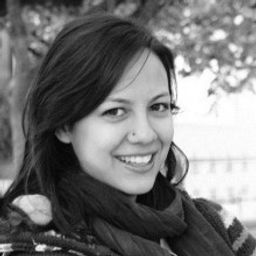
Sessions in which Azize Elif Yabaci participates
الإثنين 6 يونيو, 2016
الثّلاثاء 7 يونيو, 2016
Sessions in which Azize Elif Yabaci attends
الجمعة 3 يونيو, 2016
السّبت 4 يونيو, 2016
What if we changed our views on heritage? And if heritage has already changed? While, on the global scene, states maintain their leading role in the mobilization of social and territorial histories, on the local scale, regions, neighbourhoods and parishes have changed. Citizens and communities too: they latch on to heritage to express an unprecedented range of belongings that no law seems to be able to take measures to contain, often to the discontent of...
Most of what we experience as heritage emerges into conscious recognition through a complex mixture of political and ideological filters, including nationalism. In these processes, through a variety of devices (museums, scholarly research, consumer reproduction, etc.), dualistic classifications articulate a powerful hierarchy of value and significance. In particular, the tangible-intangible pair, given legitimacy by such international bodies as UNESCO, reproduces a selective ordering of cul...
الأحد 5 يونيو, 2016
Canal: Walking the Post-Industrial Lachine Canal (COHDS, 2013 - bilingual) is an audio-walk and booklet that takes listeners from the Atwater Market to the Saint Gabriel Lock, exploring the post-industrial transformation of a once heavily industrialized area. The Lachine Canal area has undergone dramatic changes, as mills and factories were closed and then demolished or converted into high-end condominiums. The adjoining working-class neighbourhoods ...
"What does heritage change?" is a multifaceted question to which the answer(s) are in primary respects related to real-life negotiations among different groups of citizens, cultures, races, ethnic groups, sexual identities, and social classes about received, official and/or widely accepted or accomodated intangible attributes, cultural traditions, historic monuments, buildings, and other transmitted or revived historical legacies. Heritage designated by and for whom, for what motivations, an...
Directed by Tom Fassaert and presented by Marc Jacobs. ___ Doel, a Belgian village near the Dutch border, is disappearing quickly and deliberately. Not because of the four old nuclear reactors on its territory, but because the Flemish government decided that the village might block projects for new docks for the Antwerp harbour, plans developed since the 1960s. In the 21st century this process of officially encouraged depopulation is coming to an end: 2500 inhabitants i...
الإثنين 6 يونيو, 2016
La Pointe: L’autre bord de la track / The Other Side of the Tracks (COHDS /Public History Students, 2015 - bilingual) takes walkers into a working-class neighbourhood that has undergone massive deindustrialization and is now gentrifying. Pointe-Saint-Charles is also known for its place-based activism and strong neighbourhood identity. Produced by the oral history students in Steven High’s Working Class Public History course, working closely with two other cl...
الثّلاثاء 7 يونيو, 2016
(Guided visits to Two Exhibitions, Centre d’histoire de Montréal- bilingual) – The Centre d’histoire de Montréal presents Dans le Griff that takes visitors into the neighbourhood of Griffintown, as depicted through the lives and memories of the Mercier family. Their life stories will take us down the streets of an industrial sector that has undergone quite the metamorphosis. Griffintown is one of the oldest industrial and working-class neighbourhoods in Montreal. In the forefro...
Extant scholarly literature has been documented on heritage and tourism. However, the strong links between heritage and leisure, a broader concept than tourism, have long been neglected. The notion of heritage has pervaded in a variety of humanities-related fields, among them is leisure, which demonstrates the lived experience of locals, and provides indispensible meanings and identity for communities and individuals. And both heritage and leisure root themselves into cultural fabrics of soci...








